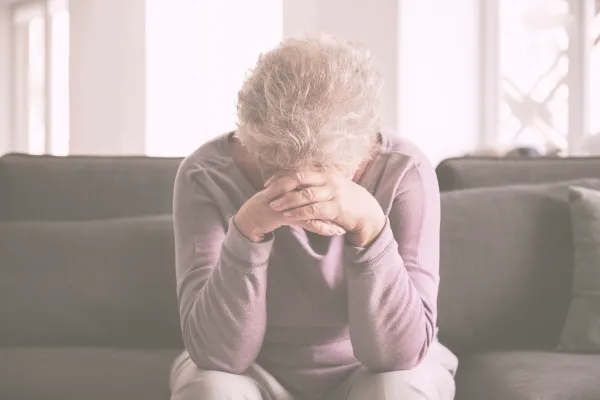
Why Caregivers Feel Exhausted Even After Sleeping
You wake up after eight hours in bed… and yet it feels like you’ve been hit by a truck. Your body aches, your mind feels foggy, and you’re already tired before the day even begins.
If you’re caring for someone with dementia, this isn’t just ordinary tiredness. It’s something much deeper and it has very real reasons behind it.
In this post, I’ll share the hidden causes of caregiver exhaustion, and what you can start doing today to find even a small bit of relief.
Your Brain Never Fully Shuts Off
Caregivers live in what I call “hypervigilance mode.”
Even when you’re technically asleep, your brain is still half-awake, listening for every sound, alert to every movement, waiting for the next crisis.
A creak in the floorboard.
A change in breathing.
A thought about tomorrow’s medications or appointments.
Your nervous system is scanning the environment all night long.
This means that even if your watch tells you that you slept for seven or eight hours, your brain never allowed you into the deep, restorative sleep stages. And that’s why you can wake up exhausted day after day.
The Weight of Invisible Grief
There’s another layer that steals your energy: grief.
Dementia caregiving comes with what’s often called “ambiguous loss.” You’re grieving someone who is still physically here, and those micro-losses accumulate every single day.
The jokes they no longer laugh at.
The conversations that trail off.
The milestones they forget.
This grief doesn’t follow a schedule. It surfaces in the quietest moments looking at a photo, remembering how things used to be, realizing what’s no longer possible.
Grief takes energy. And because it’s silent and invisible, others may not see it, but you feel it in your bones.
Living in Constant Stress Mode
Caregiving also keeps your body locked in a chronic stress response.
When stress hormones like cortisol stay elevated for too long, they wreak havoc on your sleep cycle, digestion, immune system, and focus.
You might get hours of rest, but your body doesn’t know how to fully relax. You toss, you turn, and your sleep never feels restorative.
This is why many caregivers describe feeling like they’re “running on fumes” even on days when they aren’t physically exerting themselves.
The Identity Shift Nobody Talks About
Here’s the piece most overlooked: the exhaustion of identity loss.
One day you’re a spouse, daughter, or son. The next, you’ve become a nurse, advocate, or manager of medications and appointments.
And in that constant role-reversal, parts of you get lost.
Caregivers often tell me: “I don’t even know who I am anymore. I used to have hobbies, friends, things I loved. Now, I’m just a caregiver.”
That loss of self is draining in ways that have nothing to do with sleep. It’s an emotional and spiritual exhaustion, and the fatigue of disappearing into a role you never signed up for.
What Actually Helps
Here’s the truth: you’re not weak. You’re not failing. Your exhaustion makes sense.
And while there’s no quick fix, here are a few small steps that can make a difference:
Nervous system resets. A few minutes of deep breathing, journaling, stretching, or sitting in your car before walking back inside. These small rituals signal your body that it’s safe to calm down.
Micro-rituals of connection. Holding onto a piece of music, a daily walk, or a small tradition that grounds you in who you are outside of caregiving.
Finding someone who understands. Whether it’s a group, a counselor, or a trusted friend, being seen and heard can lighten the invisible load.
In Closing
If you wake up exhausted every day, you are not broken, you are carrying the weight of love, grief, and constant vigilance.
Understanding the real reasons behind your fatigue is the first step toward giving yourself permission to care for yourself as fiercely as you care for your loved one.
Because no caregiver should have to walk through this kind of exhaustion alone.
💜 Caring for you while you care for them.
